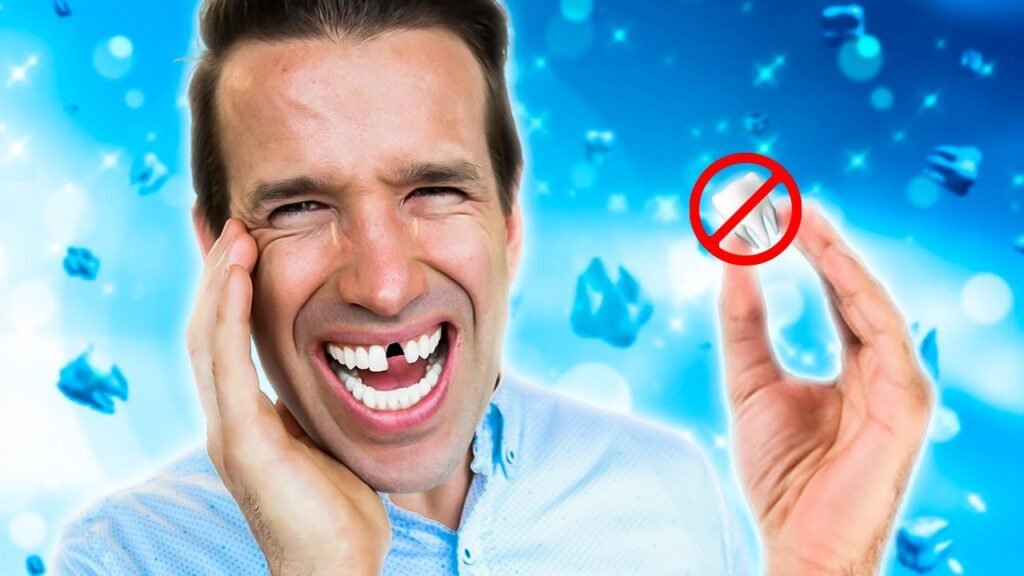Dental Dilemma: Can a Tooth Simply Fall Out?

Have you ever wondered, can a tooth just fall out? Many people experience the unsettling surprise of unexpectedly losing a tooth, whether due to injury, decay, or other factors. In this article, we'll explore the common reasons why a tooth may fall out and what to do if it happens to you. Whether you're concerned about your own dental health or simply curious about the possibilities, read on to discover the answers to this common question.
What would cause a tooth to suddenly come out?
There are several reasons why a tooth might just fall out. The two most common are periodontal disease and traumatic injuries. Periodontal disease is a condition caused by plaque, tartar and bacteria around the tooth, which then infect the gums. Over time the gums “detach” and create “pockets” around the root of the tooth. If left untreated, this can lead to the tooth becoming loose and eventually falling out.
Traumatic injuries, such as a blow to the face or a fall, can also cause a tooth to fall out. The force of the impact can damage the tooth and its surrounding structures, leading to it becoming loose and eventually being lost. It is important to seek immediate dental attention if you experience a traumatic injury to minimize the risk of losing a tooth.
In conclusion, it is important to practice good oral hygiene and seek regular dental check-ups to prevent periodontal disease. Additionally, taking precautions to avoid traumatic injuries to the mouth can also help prevent teeth from falling out. Overall, maintaining good dental health and seeking prompt treatment for any issues can help reduce the risk of losing a tooth.
Can a tooth simply be allowed to fall out on its own?
Don't wait for a tooth to fall out on its own - it's important to remove bad teeth to prevent further complications. Leaving a decayed tooth in place can lead to increased bacterial growth and decay in nearby healthy teeth, while a misaligned tooth could hinder the proper growth of surrounding teeth. By addressing the issue promptly, you can maintain optimal oral health and prevent potential problems down the line.
Will a dead tooth just fall out?
A dead tooth, caused by dying nerves in the pulp and lack of blood flow, will eventually fall out on its own. This condition, known as a necrotic pulp or pulpless tooth, can lead to the natural loss of the affected tooth over time. It is important to seek dental care if you suspect you have a dead tooth to prevent any potential complications.
If left untreated, a dead tooth will not simply fall out on its own. The lack of blood flow and deteriorating pulp can lead to infection and further damage to surrounding teeth and tissues. It is crucial to consult a dentist for proper diagnosis and treatment to avoid potential complications and ensure the health of your teeth and gums.
Unraveling the Mystery: Understanding Why Teeth Fall Out
Losing teeth can be a daunting experience, but understanding why it happens can provide clarity and peace of mind. From poor oral hygiene to genetic predispositions, there are various factors that contribute to tooth loss. By unraveling the mystery behind this common issue, we can take proactive steps to maintain our oral health and prevent further damage.
Regular dental check-ups, proper brushing and flossing techniques, and a balanced diet are essential in preserving our teeth and preventing them from falling out prematurely. By educating ourselves on the causes of tooth loss and adopting healthy habits, we can ensure a lifetime of strong and beautiful smiles. Let's dive deeper into the mystery of why teeth fall out and empower ourselves with the knowledge needed to protect our precious pearly whites.
Preserving Your Smile: Preventing Tooth Loss
Preserving your smile is essential for preventing tooth loss. By practicing good oral hygiene habits such as brushing and flossing daily, visiting your dentist regularly for check-ups and cleanings, and avoiding sugary and acidic foods, you can maintain the health of your teeth and gums. Taking proactive steps to prevent gum disease and tooth decay will ultimately help you keep your natural teeth for a lifetime. Remember, a healthy smile is a beautiful smile, so prioritize your oral health to preserve your smile and prevent tooth loss.
In some cases, a tooth may simply fall out due to various factors such as decay, trauma, or gum disease. It is important to seek prompt dental care if this occurs to prevent further complications and to explore treatment options such as dental implants or bridges. Remember to prioritize oral hygiene and regular dental check-ups to maintain a healthy smile for years to come.